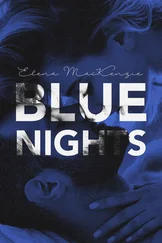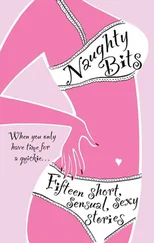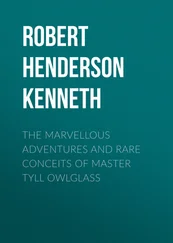Robert Mackenzie - Bits of Blarney
Здесь есть возможность читать онлайн «Robert Mackenzie - Bits of Blarney» — ознакомительный отрывок электронной книги совершенно бесплатно, а после прочтения отрывка купить полную версию. В некоторых случаях можно слушать аудио, скачать через торрент в формате fb2 и присутствует краткое содержание. ISBN: , Жанр: foreign_prose, foreign_humor, на английском языке. Описание произведения, (предисловие) а так же отзывы посетителей доступны на портале библиотеки ЛибКат.
- Название:Bits of Blarney
- Автор:
- Жанр:
- Год:неизвестен
- ISBN:http://www.gutenberg.org/ebooks/43563
- Рейтинг книги:5 / 5. Голосов: 1
-
Избранное:Добавить в избранное
- Отзывы:
-
Ваша оценка:
- 100
- 1
- 2
- 3
- 4
- 5
Bits of Blarney: краткое содержание, описание и аннотация
Предлагаем к чтению аннотацию, описание, краткое содержание или предисловие (зависит от того, что написал сам автор книги «Bits of Blarney»). Если вы не нашли необходимую информацию о книге — напишите в комментариях, мы постараемся отыскать её.
Bits of Blarney — читать онлайн ознакомительный отрывок
Ниже представлен текст книги, разбитый по страницам. Система сохранения места последней прочитанной страницы, позволяет с удобством читать онлайн бесплатно книгу «Bits of Blarney», без необходимости каждый раз заново искать на чём Вы остановились. Поставьте закладку, и сможете в любой момент перейти на страницу, на которой закончили чтение.
Интервал:
Закладка:
I ventured to say to Mr. McCann that, being yet incredulous, I must have better evidence than little Con's own declaration.
"To be sure you shall," said he. "Was not the golden cup taken up to Barry's-fort, and to be seen – as seen it was – by the whole country?"
I answered that, "Certainly, if the cup is to be seen there, the case is materially altered."
"I did not say that the cup is at Barry's-fort," said McCann, "only that it was . The end of the story, indeed, is nearly as strange as the beginning. – When Con O'Keefe came back from his wonderful excursion, no one believed a word of what he said; for though it was whispered that he was great with the fairies, yet, when the matter came tangibly before them, they did not credit it. But Con soon settled their doubts; he brought forward the cup, and there was no gainsaying that evidence.
"Mr. Barry took the cup into his own keeping, and, the name and residence of the French lord being engraved upon it, determined (as in honor bound) to send it home again. So he went off to Cove, without any delay, taking Con with him; and, as there luckily was a vessel going off to France that very day, he sent off little Con with the cup and his very best compliments.
Now, the cup was a great favorite with the French lord (being a piece of family plate, given to one of his ancestors by one of the old kings of France, whose life he had saved in battle), and nothing could equal the hubbub and confusion that arose when it was missing. His lordship called for some wine at dinner, and great was his anger when the lackey handed it to him in a glass, declaring that they could not find the golden goblet. He threw glass, and wine, and all, at the servant's head – flew into a terrible passion – and swore, by all that was good and bad, that he would not take anything stronger than water until the cup was on the table again; and that, if it was not forthcoming in a week, he'd turn off every servant he had, without paying them their wages, or giving them a character.
"The cup was well searched for, but all to no purpose, as you may suppose. At last, the week came to an end – all the servants had their clothes packed up, to be off in the morning. His lordship was getting dreadfully tired of drinking cold water, and the whole house was, as one may say, turned topsy-turvy, when, to the delight and admiration of all, in came Con O'Keefe, from Ireland, with a letter from Mr. Barry and the cup in his fist.
"I rather think they welcomed him. His lordship made it a point to get 'glorious' that night, and, as in duty bound, the entire household followed his example, with all the pleasure in life. You may be certain that Con played away finely at the wine – you know the fairies had made him free of the cellar – so he knew the taste of the liquor, and relished it too. There can be no doubt that there was a regular jollification in the château that night.
"Con remained in France for a month, and was perfectly in clover, for, from the lord to the lackey, every one liked him. When he returned, he had a heavy purse of gold for himself, and many fine presents for his master. Indeed, while the French lord lived, which was for fifteen good years longer, a couple of hogsheads of excellent claret were annually received at Barry's-fort, as a present from him, and there was no wine in the country to equal it. As for Con O'Keefe, he never had the luck to meet the fairies again, a misfortune he very sincerely lamented. And that's the whole story."
I asked Mr. McCann, whether he really believed all of it? That worthy replied in these words: —
"Why, in truth, I must say, some parts of it require rather an elastic mind to take in; but there's no doubt that Con was sent over to France, where, it is said, there was a great to-do about a golden cup. I am positive that Mr. Barry used to receive a present of claret, every year, from a French lord, for I've drank some of the best claret in Ireland from Mr. Barry's cellar. If the tale be true – and I have told it as I have heard Con O'Keefe tell it, especially when overcome by liquor, at which time, the truth is sure to come out – it is proof positive, that there have been fairies in this neighborhood, and that within the memory of man!"
Such a logical conclusion was incontrovertible, especially when enforced by a facetious wink from the schoolmaster; so, I even left matters as they were, and listened with all proper attention to other stories in the same vein, and to the same effect. If the narrator did not credit them, most of his auditors did, which amounts to much the same in the end. Some other time, perhaps, I may be tempted to relate them.
LEGENDS OF FINN MAC COUL
There is a similarity, all over the world, between the popular legends and traditions of different nations. They are reproduced, with slight differences of circumstance and costume, to suit each new locality. For example, the Maiden Tower at Constantinople, actually built by the Emperor Manuel, centuries ago, for the purpose of a double communication – with Scutari, on the Asian side, and with the point of coast occupied by the Serai Bournou on the Asian. Whenever the hostile visit of a Venetian fleet was anticipated, a strong iron chain used to be drawn on both sides, across the entire breadth of the strait. Respecting this are several legends, all of which have their prototypes in the West.
The generally received account has appropriated it as the place in which, for safety, a damsel was held in close retirement until the fatal time named in a prediction should have passed away; but a serpent, accidentally brought up in a basket of fruit, caused the maiden's death. Here is a striking illustration of the similarity between the legends of the East and those of the West. In the Third Calendar's Story, in the Arabian Nights' Entertainments (which have charmed all of us in youth, and rarely fail to delight us when we return to them in maturer years), the whole interest turns on an incident of the same character. Both stories appear deeply imbued with that fatality which forms the distinguishing feature in Eastern belief and practice. Near Bristol, also, are the remains of a tower, called Cook's Folly, erected to be the dwelling-place of a youth of whom it had been predicted that (like the heroine of the Turkish legend) his life would be in peril from a serpent until the completion of his eighteenth year. The dangerous time had nearly expired, when the youth died from the venomous bite of an adder, which had been accidentally conveyed to his isolated abode in a bundle of fagots.
In the south of Ireland, on the summit of a mountain called Corrig Thierna (Athe Chieftain's Rock), is a heap of stones which, if there be truth in tradition, was brought there to build a castle in which was to dwell a son of Roche, Prince of Fermoy, of whom it had been predicted that he would be drowned before his twentieth year. The child, when only five years old, fell into a pool of water which had been collected, on the top of the mountain, to make mortar for the erection of the tower, in which it was intended he should be kept "out of harm's way," until the perilous period had elapsed. The child was drowned. In each case, the prophecy appears to have brought about its own fulfilment. There is a moral in these old traditions, did we but know how to seize and apply it.
Washington Irving has localized several legends as American, but his Rip Van Winkle has been traced to a German origin, and many of his other legends appear to be old friends in a new attire. Who can say whence any traditional stories are derived? Some years ago, a supplement to the Thousand-and-One Nights, containing an Arabian tale called the Sage Heycar, was published at Paris, and the translator noted the curious fact that this Oriental story contained many incidents exactly similar to passages in the life of Æsop: such as sixteen pages of details of a visit made by Heycar to the court of Pharaoh, which are the same, word for word, with the account of the like visit made by Æsop. So, too, the challenge which Pharaoh sent to the King of Abyssinia, demanding him to build a palace in the air, and the ingenious means to which Æsop had recourse, are transferred to Heycar. Even the fables of Æsop, the Phrygian, have been claimed for Lokman, the Arabian philosopher, and now the very incidents of his life are taken from him by Heycar.
Читать дальшеИнтервал:
Закладка:
Похожие книги на «Bits of Blarney»
Представляем Вашему вниманию похожие книги на «Bits of Blarney» списком для выбора. Мы отобрали схожую по названию и смыслу литературу в надежде предоставить читателям больше вариантов отыскать новые, интересные, ещё непрочитанные произведения.
Обсуждение, отзывы о книге «Bits of Blarney» и просто собственные мнения читателей. Оставьте ваши комментарии, напишите, что Вы думаете о произведении, его смысле или главных героях. Укажите что конкретно понравилось, а что нет, и почему Вы так считаете.












